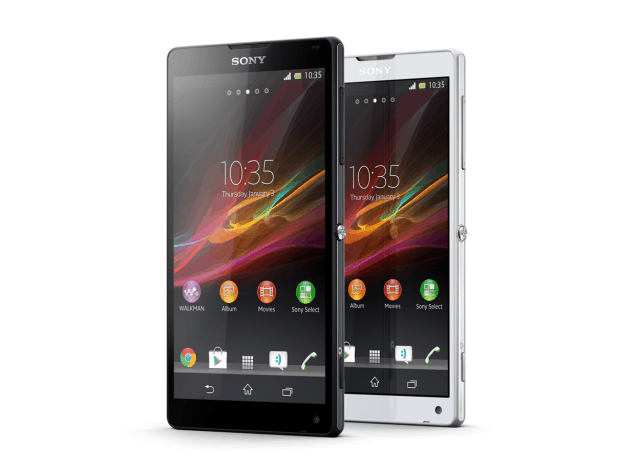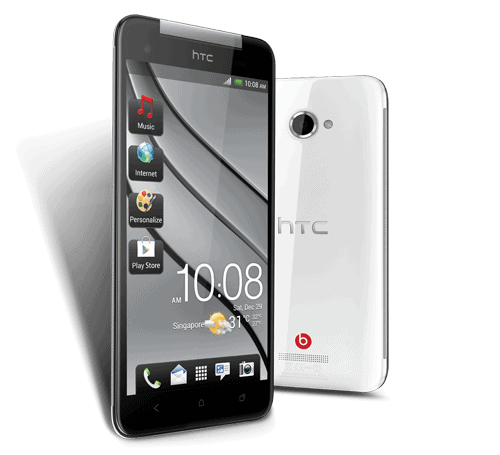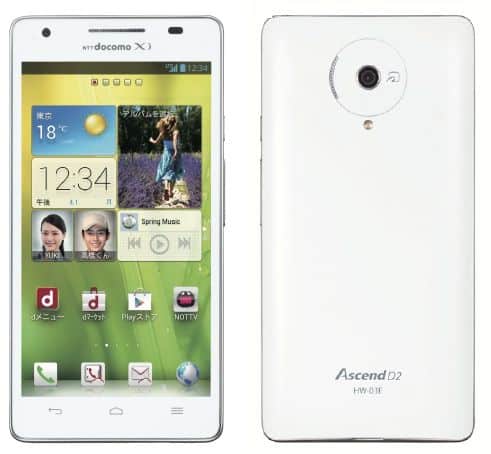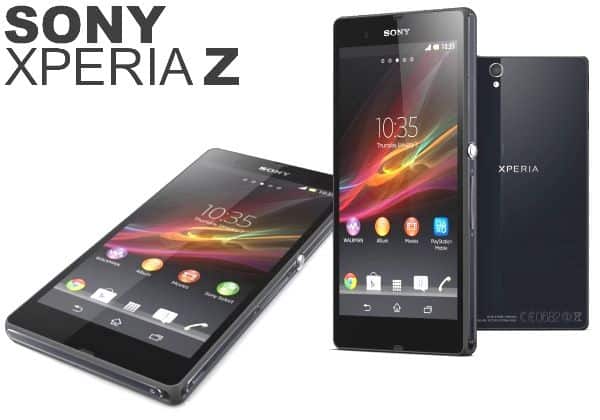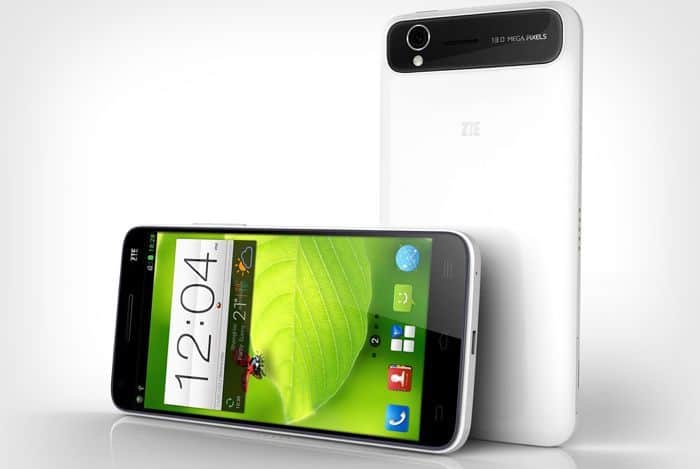Table of Contents
HTC Butterfly
When it launched, the HTC Butterfly created a big stir in the Japanese market with a configuration that included a 5-inch Full HD 1920×1080 display, a 1.5GHz quad-core processor, and LTE connectivity.
From the HTC Global website, information about this particular device being imported has recently come to light. The specifications of the machine are closer to those of the Japanese version, but LTE connectivity has been dropped.
Introduction
Present the HTC Butterfly; its date of launch, its target market, and its standing in the smartphone market at the time of release.
Design and Build Quality
Discuss the design aesthetics, build, materials used, ergonomics, and the feel of the HTC Butterfly. Point out anything unique and innovative in the design.
Display
Discuss the qualities of the screen, resolution, brightness, color reproduction, viewing angles, and the general quality compared with similar priced devices. Discuss whether it is adequate for the kind of uses it is meant for, including multimedia viewing, gaming, and working.
Performance
Discuss the performance of the HTC Butterfly with regard to its processor (probably Qualcomm Snapdragon S4 Pro), RAM, and internal storage. Provide relevant benchmarks if any and discuss real-world performance on multitasking, gaming, and application usage.
Software and Interface
Describe the version of the Android operating system it runs on (probably Android 4.1 Jelly Bean or later), the UI (HTC Sense UI), app ecosystem (Google Play Store), and general user experience with an emphasis on any exclusive HTC software features or improvements.
Camera Quality
Evaluate the camera performance, taking into account, megapixel count, image quality in various lighting conditions, video recording abilities, and other optional features like optical image stabilization or HDR modes.
Battery Life
Discusses battery capacity, usage patterns, screen-on time, and implemented methods to save power. Would also include an insight into the battery duration under different usage cases.
Connectivity
Talk about connectivity options, cellular network support, Wi-Fi, Bluetooth, NFC, GPS accurateness, and any location-based features as well as data speed and consistency.
Audio and Multimedia
Discuss the audio qualities from stereo speakers and the standard 3.5 mm jack, multimedia playback features, all supported audio and video formats, and any enhancements, such as Beats Audio or other enhancement features.
Additional Features
Tell about any special features, such as expandable storage, unusual sensors, or water resistance, if applicable, and anything there is worth mentioning about the HTC Butterfly.
Pros
Based on an assessment of different elements, summarize the advantages.
Cons
Discuss the product’s weaknesses or limitations vis-à-vis the competition and user expectations.
Conclusion
Offer a final verdict on the performance of the HTC Butterfly and its features, build quality, value for money, and overall suitability for the intended audience. Conceivably touch on concerns for long-term durability or issues users may confront.
Recommendations
Put forth the recommendations for whom the HTC Butterfly would be best suited when considering the pros and cons of the device.
References
List all sources used for factual reference or comparative purposes from within the review.
Using this approach, one could compose a full self-contained review for the HTC Butterfly, thus lending potential buyers in-depth information about the device to aid them in their decision-making process.
HTC Butterfly X920D Unlocked GSM 4G LTE Android Smartphone w/ Beats Audio Sound, 8MP Camera, Quad-Core Processor- Black: Buy it now
Huawei Ascend D2
With a 5-inch 1080p display, the Huawei Ascend D2 was among the CES 2013 top-of-the-line handsets. They would approximate to being the king until and unless the Eight core was born. The display is bright, and the density stands at 443ppi, thereby preventing any distinction by the end-user between pixels-even if the user attempts to do so.
Moreover, a battery capacity flat 3000mAh gives the Ascend D2 an edge over its competitors pumped up to handling 1080p content.
Introduction
Introduce the Huawei Ascend D2; include its release date, the target market for it, and how it stood in the smartphone market at its release.
Design and Build Quality
Talk about design aesthetics, materials used, build quality, ergonomics, and the feel of the Huawei Ascend D2. Highlight any unique design elements or innovations.
Display
Judge the display for its quality, resolution, brightness, color reproduction, viewing angles, and in comparison to other devices of its price. Also, assess its suitability for potential areas of use, such as multimedia consumption, gaming, and reading.
Performance
Talk of all aspects of performance of the Huawei Ascend D2-processor (likely to be a Huawei HiSilicon K3V2), RAM, and internal storage. If possible, throw in some benchmark results. Discuss some real-life scenarios: multitasking, gaming, running apps, and so on.
Software and User Interface
It runs on a version of Android, probably Android 4.1 Jelly Bean or later. Keep in mind the user interface is Huawei’s custom UI, maybe Emotion UI. Its app ecosystem is Google Play Store, and the user experience must also be looked into. Discuss any software features or software enhancements in terms of Huawei-specific enhancements.
Camera Quality
Analyze the camera, including technical specs like megapixels, image quality in various lighting situations, video recording capacity (max resolution and frame rate), plus features such as HDR mode or optical image stabilization.
Battery Life
Speak about battery capacity, regular usage conditions, screen-on time, and power-saving features. According to different usage habits, how long does the battery last when fully charged? Inquire if the device supports fast charging.
Connectivity
Discuss cellular network support (4G LTE, 3G, and so forth) and Wi-Fi performance, Bluetooth version, GPS accuracy, etc. Discuss data speed and reliability.
Audio and Multimedia
Evaluate audio and speaker quality, and audio and video formats supported by the multimedia player. Also, provide information on audio enhancements such as Dolby Atmos or any other audio technology supported by the device.
Additional Features
Highlight any standout features such as expandable storage options, biometric security features (fingerprint scanner, face unlock), unique sensors (IR blaster, barometer), or any other notable functionalities specific to the Huawei Ascend D2.
Pros
Summarize the strengths of the Huawei Ascend D2 based on the evaluation across different categories.
Cons
Discuss the weaknesses or limitations of the device compared to its competitors or in terms of user expectations.
Conclusion
Provide a final verdict considering the Huawei Ascend D2’s performance, features, build quality, value for money, and overall suitability for its intended audience. Mention any long-term durability concerns or potential issues that users might encounter.
Recommendations
Offer recommendations based on who might benefit most from using the Huawei Ascend D2, considering its strengths and weaknesses.
References
Include any sources or references used for factual information or comparisons made throughout the review.
By following this structured approach, you can create a comprehensive review of the Huawei Ascend D2, providing readers with detailed insights into its capabilities and helping them make informed decisions about the device.
Sony Xperia Z
Sony really went all out in the hardware of Xperia Z. This device runs on Qualcomm Snapdragon S4 Pro, 1.5GHz, which has proved to be powerful in devices such as LG Nexus 4 and Xiaomi MI-2. The S4 Pro supports 2GB of RAM and also has LTE connectivity. Hence, this means faster processing speed as well as faster web browsing.
The quad-core processor inside the Xperia Z will not be a hindrance in handling such a huge pixel count of a 1080p screen. Sony’s Mobile Bravia Engine 2 churns out fairly clear and crisp images. Also, the hand feel of the Xperia Z is very comfortable, even for someone with small hands.
Introduction
This part deals with the introduction of Sony Xperia Z along with the date of release, target audience, and his placement in the smartphone market at the time of release.
Design and Build Quality
Discussion on how the Sony Xperia Z is designed from aesthetics right down to the materials used and build quality; ergonomics and overall feel of the hands-on unit. Any noteworthy design elements or innovations should be brought contrary, for instance, the ability to resist water and dust.
Display
Discuss display quality and resolution (which is probably Full HD), brightness, color reproduction, view angle, and its merits and demerits compared to others in its price segment. Talk about its suitability for viewing multimedia, gaming, and reading.
Performance
Assess the Sony Xperia Z from the standpoint of the processor (seemingly a Qualcomm Snapdragon S4 Pro), RAM, and internal storage. Benchmarking information should be considered if available, along with an evaluation of real-world performance in multitasking, gaming, and application usage scenarios.
Software and User Interface
Discuss the Android operating system version (probably Android 4.1 Jelly Bean or later) and user interface (could be Sony’s custom UI, Xperia UI), and app ecosystem (Google Play Store), along with the user experience. Mention any software features that stand apart or are distinctively enhanced by Sony.
Camera Quality
Camera performance evaluation would involve discussing the megapixels, the image quality, and camera abilities in different lighting conditions. Then, in terms of video, discuss the camera’s maximum video resolution and framerates and any other features that the camera may have that make it stand out, which could consist of HDR mode, stabilization, or enhanced manual controls.
Battery Life
Discuss the battery capacity, use cases, screen-on time, power-saving features, and how the battery behaves during normal use, under heavy use, and standby time. In greater detail, mention the charging speed and whether it supports any fast charging technologies.
Connectivity
Discuss connectivity features that include cellular communications support or specifications (such as 4G LTE, 3G, etc.), Wi-Fi performance, Bluetooth version, NFC capabilities (if any), GPS accuracy, and any other salient features. Keep in mind data rates and reliability.
Audio and Multimedia
Sound quality should be evaluated through speakers and through the headphone jacks, along with an evaluation of multimedia capabilities of the device (supported and unsupported audio/video formats), including all enhancements like virtual surround sound, or whatever audio technology is integrated onto the device.
Additional Features
There will always be some highlights, such as the possibility of shuffling around different storage performances, biometric fixes (be it fingerprint recognition or face unlock), singular sensors (like IR blaster or barometer), or any other noteworthy function specific to the Sony Xperia Z.
Pros
Summarize the strong points of the Sony Xperia Z as per the evaluation across various headings.
Cons
Briefly stress on the shortcomings or limitations that the device happens to have, comparing it with the competition or the expectations from a user point of view.
Conclusion
It will provide the final verdict about Sony Xperia Z in terms of performance, feature set, build quality, value for money, and an overall consideration against its target audience. It will also indicate any issues related to long-term durability or any wipe that a user might face down the track.
Suggestions
Gives recommendations about whom the Sony Xperia Z would be most beneficial for, given its strengths and weaknesses.
References
All the sources or references used for the factual information or comparative analysis done throughout the review.
If you follow this structure, you will be able to build a comprehensive review of the Sony Xperia Z, which would give the reader thorough insight into its abilities and greatly help them in deciding whether to take the plunge.
Sony Xperia Z C6606 16GB T-Mobile GSM (Not Unlocked) Ultra-Slim WaterProof Smartphone w/ 13MP Camera – Black – (Certified Refurbished): Buy it now
Sony Xperia ZL
Along with the Xperia Z, the ZL has great specifications. It sports a 1.5GHz quad-core Snapdragon processor, 2GB of RAM, and LTE connectivity. The real sensation in the usage in itself lies in the smooth experience on the machine; site-loading speed is very fast.
In terms of design, the Xperia ZL looks quite similar to its ‘Z’ brother, perhaps a little smaller. But both of them also still employ Sony’s Mobile Bravia Engine 2 technology.
Introduction
Introduce the Sony Xperia ZL, covering its release date, target market, and where it stood in the smartphone market at the time of release.
Design and Build Quality
Discuss in brief the design aesthetics of the Sony Xperia ZL, along with materials used, build quality, ergonomics, and the overall feel. Mention anything that may be considered works of unique design-room or innovation in comparison to what was out then.
Display
Discuss its display quality as well as resolution, which is likely Full HD, brightness, color reproduction, viewing angles, and comparisons to other devices in terms of price. Evaluate the suitability for multimedia use, gaming, and reading.
Performance
Talk about the performance of the Sony Xperia ZL with regard to scenic outlook processor, which is likely a Qualcomm Snapdragon S4 Pro, RAM, and internal storage. Give benchmarks if available, describe the real-world performance, multitasking, and gaming, and describe app usage.
Software and User Interface
Talk about the Android operating system version on which the phone runs (possibly Android 4.1 Jelly Bean or later), the UI (Sony’s custom UI, possibly Xperia UI), the app ecosystem (Google Play Store), and the user experience. Also, discuss any software features or enhancements unique to Sony.
Camera Quality
The camera performance has to be reviewed, like how many megapixels it has, the image quality under several lighting situations, video recording, the maximum resolution and frame rates for video recording, and any other special camera features such as HDR mode, stabilization, or even manual controls.
Battery Life
Battery capacity and day-to-day use, screen-on time, and power-saving features are discussed. How long one can expect to use the machine on a single charge under different regimes and whether or not the device supports fast charging are also taken into consideration.
Connectivity
Taking into account different connectivity options regarding cellular network support (4G LTE, 3G), Wi-Fi performance, Bluetooth version with NFC if any, GPS precision and any other important connectivity features, and then data speeds and reliability are discussed.
Audio and Multimedia
Comment on audio quality via an external speaker and through the headphone jack and multimedia playback support (audio-video formats supported), enhancements like Dolby Digital, virtual surround, or other proprietary audio technologies implemented in the device.
Additional Features
Highlight any feature that may make the device stand out: expandable storage, biometric security features (be it fingerprint unlocking or face unlocking), unique sensors (could be an IR blaster or barometer), or any other special feature specific to the Sony Xperia ZL.
Pros
Based on the evaluation about various categories, sum up the strengths of the Sony Xperia ZL.
Cons
Based on expected competition or a user-based experience, discuss the shortcomings or shortcomings of the device.
Conclusion
Thereby giving a final verdict on the Sony Xperia ZL in terms of performance, features, build quality, value for money, and general suitability for an intended audience. Give some very brief remarks on concerns about long-term durability or any possible long-term effects users might face.
Recommendations
Make recommendations to explore the potential groups for whom the Sony Xperia ZL could be most interesting- weighing its advantages and disadvantages.
References
Any sources or references used for factual information or comparisons in the review must be listed.
In this manner, a proper understanding of the Sony Xperia ZL will be attained through a detailed review. This gives the readers a fair insight into its functionality and makes purchasing decisions easier.
Sony Xperia ZL LTE C6506 Unlocked Android Phone – US Warranty – (Red): Buy it now
ZTE Grand S
In ZTE’s Grand series alongside Grand X and Grand Era, the Grand S is equipped with a 5-inch Full HD touch screen.
The front camera has 2MP resolution; the primary camera is a 13MP one with 1080p video-recording capabilities. The camera features include face detection, flash, and wide panorama.
Grand S has a mere 1780mAh battery capacity. The device also happens to sport 2GB RAM, Dolby Digital surround sound technology, and is only 6.9mm thin.
Introduction
Introduce the ZTE Grand S by looking into the release date, target market, and its market position when released.
Design and Build Quality
Discuss its design aesthetics, materials used, build quality, ergonomics, and general feel. Also, relate it to some unique design aspects that set it apart from other smartphones.
Display
Assess display quality, resolution (must be Full HD or above), brightness, color reproduction, viewing angles, and its comparison with other devices in the same price category. Also, talk about its suitability for multimedia, gaming, and reading.
Performance
Speak about the performance in terms of the processory (likely a Snapdragon S4 Pro or equivalent from Qualcomm), RAM, and internal storage. Put in benchmarks, if possible, and discuss real-world usage: multitasking, gaming, and all other app usages.
Software and User Interface
Deliberate upon the Android OS version it runs on (most probably Jelly Bean 4.1 or above), the user interface layer designed by ZTE, if present, app ecosystem like Google Play Store again, and then user experience. Discuss any specialty software features brought in by ZTE or enhancements made by them.
Camera Quality
Discuss the megapixels, assess the image quality in differing ambient light conditions, and analyze video recording capabilities in terms of maximum resolution and frame rates, as well as supplementary camera features such as HDR mode, image stabilization, and manual controls.
Battery Life
Talk about battery capacity and battery life in everyday usage, screen-on time, and power-saving modes available. Provide an overview of how the performance is in terms of battery endurance across different usage styles, with charging support, if relevant, like quick charging.
Connectivity
Discuss connectivity options like cellular network support (4G LTE, 3G, and so forth), Wi-Fi performance, Bluetooth version, NFC support (if it applies), GPS accuracy, and any other necessary details. Data speeds and reliability should also be included.
Audio and Multimedia
Evaluate the sound quality coming from the speakers and through the headphone jack, along with multimedia playback abilities (supported audio and video formats) and enhancements, if any, including virtual surround or other audio technologies integrated into the device.
Additional Features: Special Attributes
Highlight any spotlight features that may include USB OTG (On-The-Go) compatibility for external storage options, biometric security features (fingerprint scanner, face unlock), or maybe special sensors (IR blaster, barometer), amongst other major functionalities specific to the ZTE Grand S.
Pros
Discuss the positives of the ZTE Grand S from analyses of various aspects.
Cons
Mention any drawbacks, either comparing the device with its competitors or based on user demands.
Conclusion
Give the final verdict on performance, features, build quality, value for money, and suitability for the ZTE Grand S and its users. Also, mention any concerns about long-term durability and any issues that would have potential in the user’s mind.
Recommendations
Recommendations on who would benefit most from using the ZTE Grand S will be provided, based on its strengths and weaknesses.
References
All sources or references that were used, for providing factual information/those used for any comparisons through the review.
Planning according to this will ensure a detailed and wholesome review on ZTE Grand S for the readers to understand explicitly about its specifications and assist them in making the final decision concerning the equipment.
ZTE Grand S Smartphone – 5 Inch FHD 1920×1080 Gorilla Glass Screen, Android 4.2 OS, Quad Core 1.5GHz CPU: Buy it now
